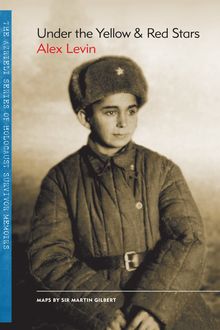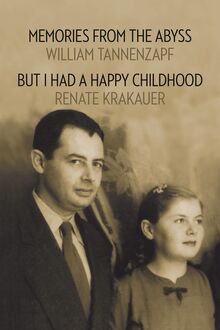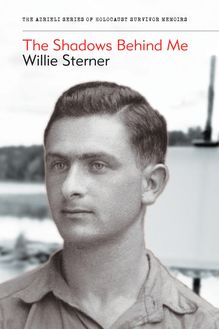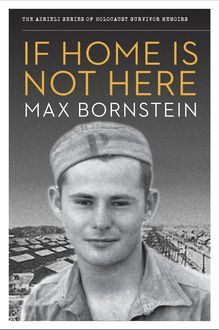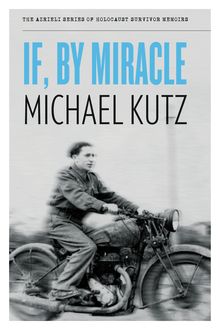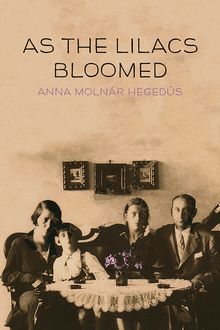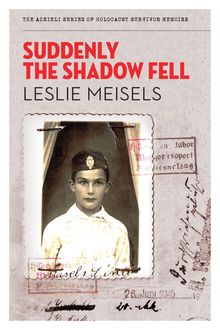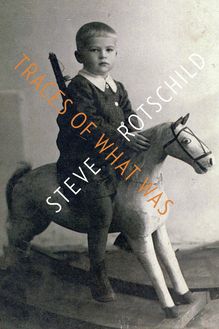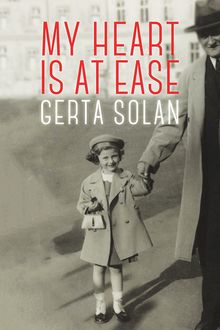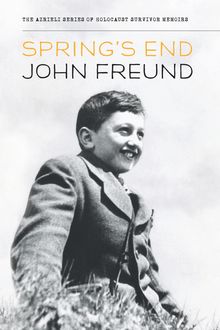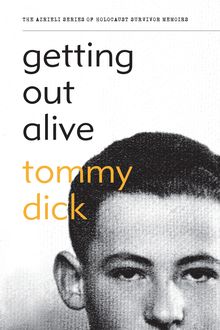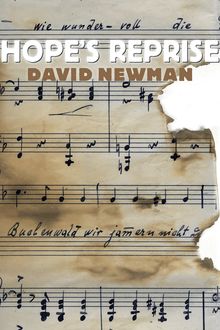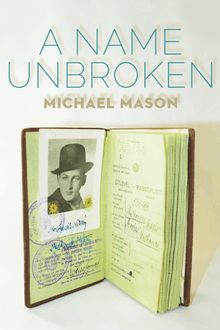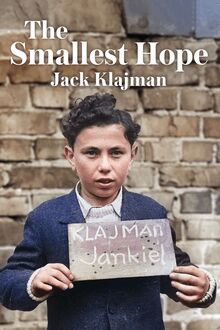-
 Univers
Univers
-
 Ebooks
Ebooks
-
 Livres audio
Livres audio
-
 Presse
Presse
-
 Podcasts
Podcasts
-
 BD
BD
-
 Documents
Documents
-
- Cours
- Révisions
- Ressources pédagogiques
- Sciences de l’éducation
- Manuels scolaires
- Langues
- Travaux de classe
- Annales de BEP
- Etudes supérieures
- Maternelle et primaire
- Fiches de lecture
- Orientation scolaire
- Méthodologie
- Corrigés de devoir
- Annales d’examens et concours
- Annales du bac
- Annales du brevet
- Rapports de stage
La lecture à portée de main
Vous pourrez modifier la taille du texte de cet ouvrage
Découvre YouScribe en t'inscrivant gratuitement
Je m'inscrisDécouvre YouScribe en t'inscrivant gratuitement
Je m'inscrisEn savoir plus
Vous pourrez modifier la taille du texte de cet ouvrage
En savoir plus

Description
Sujets
Informations
| Publié par | Azrieli Foundation |
| Date de parution | 01 septembre 2014 |
| Nombre de lectures | 2 |
| EAN13 | 9781897470800 |
| Langue | English |
| Poids de l'ouvrage | 1 Mo |
Informations légales : prix de location à la page 0,0300€. Cette information est donnée uniquement à titre indicatif conformément à la législation en vigueur.
Extrait
Joy Runs Deeper
Bronia and Joseph Beker
JOSEPH BEKER’S MEMOIR TRANSLATED FROM YIDDISH BY VIVIAN FELSEN
The Azrieli Series of Holocaust Survivor Memoirs
Naomi Azrieli, Publisher
Jody Spiegel, Program Director
Arielle Berger, Managing Editor
Elizabeth Lasserre, Senior Editor, French-Language Editions
Aurélien Bonin, French-Language Educational Outreach and Events
Catherine Person, Quebec Educational Outreach and Events
Elin Beaumont, English-language Educational Outreach and Events
Tim MacKay, New Media and Marketing
Susan Roitman, Executive Assistant and Office Manager (Toronto)
Mary Mellas, Executive Assistant and Human Resources (Montreal)
Eric Bélisle, Administrative Assistant
Mark Goldstein, Art Director
François Blanc, Cartographer
Bruno Paradis, Layout, French-language editions
Contents
The Azrieli Series of Holocaust Survivor Memoirs
Series Preface: In their own words...
About the Glossary
Introduction
Foreword
Bronia’s Story
Our Little Shtetl
Meeting Josio
I Saw No Hope
Never Give Up
Joseph’s (Josio’s) Story
A Simple Life
Making a Name for Myself
The Polish Army
The Soviets and the Germans
Glossary
Photographs
Copyright
About the Azrieli Foundation
Also Available
Series Preface: In their own words...
In telling these stories, the writers have liberated themselves. For so many years we did not speak about it, even when we became free people living in a free society. Now, when at last we are writing about what happened to us in this dark period of history, knowing that our stories will be read and live on, it is possible for us to feel truly free. These unique historical documents put a face on what was lost, and allow readers to grasp the enormity of what happened to six million Jews – one story at a time.
David J. Azrieli , C.M., C.Q., M.Arch
Holocaust survivor and founder, The Azrieli Foundation
Since the end of World War II , over 30,000 Jewish Holocaust survivors have immigrated to Canada. Who they are, where they came from, what they experienced and how they built new lives for themselves and their families are important parts of our Canadian heritage. The Azrieli Foundation’s Holocaust Survivor Memoirs Program was established to preserve and share the memoirs written by those who survived the twentieth-century Nazi genocide of the Jews of Europe and later made their way to Canada. The program is guided by the conviction that each survivor of the Holocaust has a remarkable story to tell, and that such stories play an important role in education about tolerance and diversity.
Millions of individual stories are lost to us forever. By preserving the stories written by survivors and making them widely available to a broad audience, the Azrieli Foundation’s Holocaust Survivor Memoirs Program seeks to sustain the memory of all those who perished at the hands of hatred, abetted by indifference and apathy. The personal accounts of those who survived against all odds are as different as the people who wrote them, but all demonstrate the courage, strength, wit and luck that it took to prevail and survive in such terrible adversity. The memoirs are also moving tributes to people – strangers and friends – who risked their lives to help others, and who, through acts of kindness and decency in the darkest of moments, frequently helped the persecuted maintain faith in humanity and courage to endure. These accounts offer inspiration to all, as does the survivors’ desire to share their experiences so that new generations can learn from them.
The Holocaust Survivor Memoirs Program collects, archives and publishes these distinctive records and the print editions are available free of charge to libraries, educational institutions and Holocaust-education programs across Canada. They are also available for sale to the general public at bookstores. All revenues to the Azrieli Foundation from the sales of the Azrieli Series of Holocaust Survivor Memoirs go toward the publishing and educational work of the memoirs program.
The Azrieli Foundation would like to express appreciation to the following people for their invaluable efforts in producing this book: Sherry Dodson (Maracle Press), Sir Martin Gilbert, Barbara Kamieński, Farla Klaiman, Therese Parent, Mia Spiro, and Margie Wolfe and Emma Rodgers of Second Story Press.
About the Glossary
The following memoir contains a number of terms, concepts and historical references that may be unfamiliar to the reader. For information on major organizations; significant historical events and people; geographical locations; religious and cultural terms; and foreign-language words and expressions that will help give context and background to the events described in the text, please see the Glossary .
Introduction
Children of survivors are left with legacies as powerfully daunting as they are inspiring. Although our parents’ youth was shattered by unspeakable pain and profound loss, they still managed to determinedly pick up the broken pieces and stoically re-build their lives. Their tales of toughness and tenacity light our paths and teach us the kind of heroic fearlessness it takes to survive. Lessons learned from our parents inspire and challenge us to work hard, be successful and live out not just our dreams, but their unrealized ones as well. Their heroism drives us relentlessly.
Unlike some survivors who were reluctant to talk or kept their stories secret, my parents were adamant about recounting every detail of their war experience, time and time again. I remember, as a child, hiding under the bed just because I didn’t want to hear any more of their “war stories.” Now, I realize it was precisely their storytelling that made me who I am, colouring my personal philosophies, imparting resiliency and instilling in me a precious instinct for survival.
“Don’t be afraid and never give up.” That was my father’s famous motto, the mindset that saw him through the war. My mother’s modus operandi, which could chip away any potential optimism, was more pragmatic: “Expect the worst and you won’t be disappointed.” It certainly wasn’t an upbeat way of viewing the world, but it stemmed from her motherly attempt to protect us and spare us pain. While our mother’s world view certainly affected us, even to this day, it was our father’s edict that we really took to heart, an order that still carries my sister and me through all our trials.
After surviving the war, my parents spent three years in a Displaced Persons camp in Austria before boarding a boat to Halifax. My mother’s uncle Isaac Gold, who’d immigrated to Canada well before the war, sponsored them and in 1948, they embarked on their new adventure with a beautiful little girl – my sister Marilyn – and untold optimism. They were penniless, but determined to make a new life for themselves. While in Austria, my mother had been trained as a cosmetician through the Organization for Rehabilitation through Training ( ORT ). My father, quite the jack-of-all-trades, had brazenly raised his hand when he heard they were looking for furriers in Canada. Though my father had no training whatsoever in that field, he was conveniently suffering from a bout of eczema when the prospective furriers were being tested at a sewing machine, and due to his bandaged arms, he couldn’t take the test. So he was just waved through, and luckily made the list to head to Canada.
When my parents eventually arrived in Toronto in 1948, they moved in with my mother’s uncle and his ailing wife, and secured jobs: My dad first worked at a paper box factory and then at a slipper factory. My mom, unable to score a job as a cosmetician because she didn’t speak English, got hired at a pants factory for $12 a week. They scrimped and saved and four years later, in 1952, the year I was born, they managed to put a down payment on a three-storey house in a family-oriented neighbourhood in Toronto’s west end. My parents, my sister and I occupied the main floor of the house, while a colourful and constantly changing assortment of “roomers” inhabited the other two floors. We never could have afforded to live in that wonderful old place if it hadn’t been for that cast of tenants helping to subsidize our mortgage payments, but they provided much more than that for our family – sharing our home with that eclectic array of characters gave us a sense of extended family and a feeling of camaraderie. My mother’s greatest joy was the delicious feeling of a household that was leibidich – the Yiddish word for lively. And my generous dad delighted in socializing with the assorted international personalities, “interviewing” them at the kitchen table, sometimes over shot glasses of Crown Royal whiskey, imparting his wisdom and learning from his tenants.
Always adamant about wanting to be his own boss, my ambitious father, along with two of his colleagues at the slipper factory, decided to make a bold move and start their own slipper manufacturing enterprise in the basement of our house. They called their fledgling company Quality Slippers, and they specialized in children’s and women’s novelty plush slippers. As the orders grew, they eventually got a proper shop downtown, in a decrepit space in the heart of the schmatte (garment) district. My dad went to work at the shop seven days a week, and on weekdays he’
-
 Univers
Univers
-
 Ebooks
Ebooks
-
 Livres audio
Livres audio
-
 Presse
Presse
-
 Podcasts
Podcasts
-
 BD
BD
-
 Documents
Documents
-
Jeunesse
-
Littérature
-
Ressources professionnelles
-
Santé et bien-être
-
Savoirs
-
Education
-
Loisirs et hobbies
-
Art, musique et cinéma
-
Actualité et débat de société
-
Jeunesse
-
Littérature
-
Ressources professionnelles
-
Santé et bien-être
-
Savoirs
-
Education
-
Loisirs et hobbies
-
Art, musique et cinéma
-
Actualité et débat de société
-
Actualités
-
Lifestyle
-
Presse jeunesse
-
Presse professionnelle
-
Pratique
-
Presse sportive
-
Presse internationale
-
Culture & Médias
-
Action et Aventures
-
Science-fiction et Fantasy
-
Société
-
Jeunesse
-
Littérature
-
Ressources professionnelles
-
Santé et bien-être
-
Savoirs
-
Education
-
Loisirs et hobbies
-
Art, musique et cinéma
-
Actualité et débat de société
- Cours
- Révisions
- Ressources pédagogiques
- Sciences de l’éducation
- Manuels scolaires
- Langues
- Travaux de classe
- Annales de BEP
- Etudes supérieures
- Maternelle et primaire
- Fiches de lecture
- Orientation scolaire
- Méthodologie
- Corrigés de devoir
- Annales d’examens et concours
- Annales du bac
- Annales du brevet
- Rapports de stage

